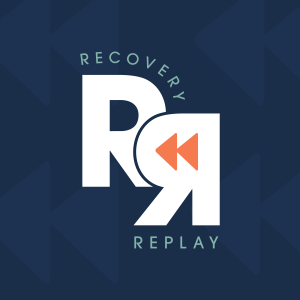
Molly Batterman: Overcoming Addiction and Complex Trauma (Part 1)
 2023-06-30
2023-06-30
In this episode of Recovery Replay, we dive deep into the story of Molly Batterman, a survivor of complex trauma and addiction. Molly shares her journey from a shy girl growing up on a Nebraska horse farm to a young woman grappling with the devastating impact of feelings of not fitting in.
Through Molly's raw and honest account, we explore how childhood experiences, such as feeling like an outsider, can lay the foundation for addiction later in life. Molly's story highlights the common path of many addicts - from prescription painkillers following an injury to full-blown opioid addiction and the desperate attempts of family and friends to intervene.
The episode also features valuable insights from Dr. Stephanie Carnes, a senior fellow at Meadows Behavioral Healthcare and clinical architect at Willow House, a renowned treatment center for women. Dr. Carnes delves into the concept of complex trauma, which involves a series of traumatic events starting in childhood and continuing into adulthood. She explains how complex trauma can lead to attachment issues, difficulty regulating emotions, toxic shame, and ultimately, a higher risk for developing addictions as a coping mechanism.
Through the lens of attachment theory, Dr. Carnes emphasizes the importance of emotional connection and support in addiction recovery. She notes that "the opposite of addiction is connection" and highlights how healthy relationships can help individuals regulate their emotions and build resilience.
Molly's story is a testament to the resilience of the human spirit and the power of recovery. Despite hitting rock bottom and nearly ending her life, Molly finds the strength to seek treatment and begin her journey to healing. Her experiences underscore the critical importance of comprehensive addiction treatment that addresses underlying trauma and mental health issues.
Key Takeaways:
1. Childhood experiences, such as having an alcoholic parent or feeling like an outsider, can increase the risk of developing an addiction later in life.
2. Complex trauma, involving a series of traumatic events starting in childhood and continuing into adulthood, can lead to attachment issues, difficulty regulating emotions, and a higher risk of substance abuse.
3. Addiction often starts with prescription painkillers following an injury and can quickly escalate to full-blown opioid addiction.
4. Family and friends may resort to desperate measures, such as interventions, to help a loved one struggling with addiction, but it's essential to maintain emotional connection and support throughout the recovery process.
5. The opposite of addiction is connection, and healthy relationships can help individuals regulate their emotions and build resilience in recovery.
6. Hitting rock bottom can be a turning point for those struggling with addiction, providing the gift of desperation and motivation to seek treatment.
7. Comprehensive addiction treatment that addresses underlying trauma and mental health issues is crucial for long-term recovery.
8. Sharing personal stories of addiction and recovery can provide hope and inspiration to others struggling with similar issues.
9. Behavioral health professionals can deepen their understanding of the link between trauma and substance abuse by learning about the complex interplay of trauma, attachment, and addiction.
10. Recovery is possible, and with the right support and treatment, individuals can overcome even the most devastating experiences of addiction and complex trauma.
This episode is a must-listen for anyone impacted by addiction or complex trauma, as well as behavioral health professionals seeking to deepen their understanding of the link between trauma and substance abuse. Molly's courage in sharing her story offers hope and inspiration to those struggling with similar issues, while Dr. Carnes' expertise provides valuable insights into the complex interplay of trauma, attachment, and addiction.
More Episodes
Create your
podcast in
minutes
- Full-featured podcast site
- Unlimited storage and bandwidth
- Comprehensive podcast stats
- Distribute to Apple Podcasts, Spotify, and more
- Make money with your podcast
It is Free
- Privacy Policy
- Cookie Policy
- Terms of Use
- Consent Preferences
- Copyright © 2015-2024 Podbean.com





